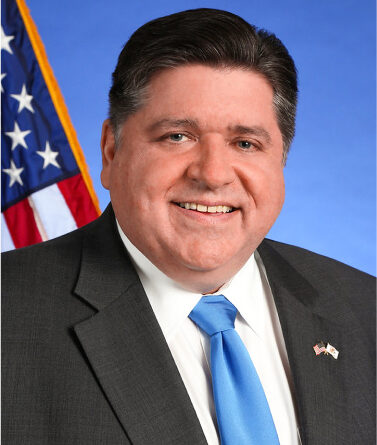Illinois Governor Disapproves Trump’s Unilateral Military Actions
Governor J.B. Pritzker of Illinois held a press briefing on Monday, expressing his concern over President Donald Trump’s intentions to involve the military in the state without any form of coordination with local authorities. He expressed his frustrations candidly and criticized this course of action, stating that they were not intimated about the plans in advance. He further associated such arrangements to direct political maneuvers rather than security motives, particularly noting the complete absence of consultation with his office or other local authorities.
In a quite direct display of displeasure, Pritzker mentioned that neither the White House nor any executive branch representative initiated a dialogue with him or the mayor of the state on the issue. He highlighted that there had been no efforts to seek their suggestions nor to align the actions with local requirements. Interestingly, there was no attempt made to contact local law enforcement either.
His remarks suggested a sense of bewilderment at the fact that they hadn’t had an opportunity to articulate the need, or the absence thereof, for federal intervention. In fact, he clarified that they had made absolutely no requests for federal forces to intervene. The governor revealed that the information about President Trump’s plans was not communicated through official channels but was learned about via a report in The Washington Post.
Pritzker raised questions about the transparency and justification of such unprecedented plans, especially when made independently of any consultation with the state governor, mayor, or law enforcement agencies. If the real intention behind it was to address crime and reinforce safety, why hadn’t any discussion taken place between the White House and the local authorities, he asked rhetorically.
Pritzker didn’t shy away from drawing a comparison between Chicago and other states where the crime rates are supposedly higher. He pointed out that while crime is a persistent issue in metro cities, be it in a red or blue state, Chicago is particularly successful in managing it. Here, he touched upon how the situation was allegedly worse in red states and their cities.
In his comments, Governor Pritzker highlighted the relentless efforts by the local police and elected leaders in Chicago, who actively work towards crime reduction and enhancing public safety. While crime hasn’t been elusively sidestepped in Chicago or any major American city, the notion of employing military forces to patrol the streets and cause probable disturbance to the residents is a radical step that necessitates a hefty justification, he articulated.
He proudly shared statistics showing a decrease in burglaries and robberies in Chicago, but also emphasized the high crime rates in various cities governed by Republicans. Thirteen of the top 20 cities having elevated homicide rates lie under Republican governors, he pointed out. Surprisingly, Chicago did not feature in this list.
Additionally, Pritzker indicated that eight of the top ten states enduring the highest crime rates are Republican-led, but Illinois was not one among them. To further illustrate the point, he cited cities like Memphis, Tennessee and Hattiesburg, Mississippi, which reportedly have crime rates greater than that of Chicago. This drew in an even sterner query about President Trump’s decision to dispatch troops to Chicago and not these cities.
He raised a query in the minds of listeners about the profound motive behind such distinctive selection. If President Trump’s actions were indeed driven by the objective of fighting city crime, the governor espoused that massive federal funding cuts for safety and crime prevention programs across the country, including Illinois, would not have been proposed.
Pritzker referred to the significant cuts proposed by President Trump and his Republican colleagues in Congress, which amounted to a reduction of over $800 million in public safety and crime prevention grants nationally. This included a reduction of $158 million in funding allocated for violence prevention programs in Illinois, calling into question their sincerity in combatting crime.
Pritzker concluded by sending a clear message to the Guard troops, asking them not to come to Chicago since their presence was neither required nor desired. He used this opportunity to address the President’s repeated references to the deployment and expressed how the community felt unappreciated as these plans were not relayed through appropriate channels.
In a stinging commentary on the President’s recent remarks, Governor Pritzker questioned the President’s mental sharpness and suitability for holding such a high office. He stressed that the President had shown a continued degradation of his mental faculties that was unbefitting of a leader of his stature.
Most strikingly, Pritzker voiced his concern over the lack of any responsible assessment from the President, who holds the highest military rank, towards the soldiers he was preparing to deploy. He strongly criticized the President’s casual decision to mobilize these forces, deeming it as a thoughtless pursuit of power while undermining the importance of military personnel.
In summarizing his press brief, Pritzker expressed heartfelt disapproval of the President’s impulsive decisions. As a result of these actions, he alleged the President was increasingly isolating himself and failing to bear the weight and responsibilities of his role as commander in chief.
Governor Pritzker’s comments shed light on the ongoing concerns and tensions between federal and state authorities regarding law enforcement in Chicago. His assertion for a collaborative approach serves as a reminder of the complexities of governing a diverse nation like the United States and the imperative need for dialogue between authorities.



